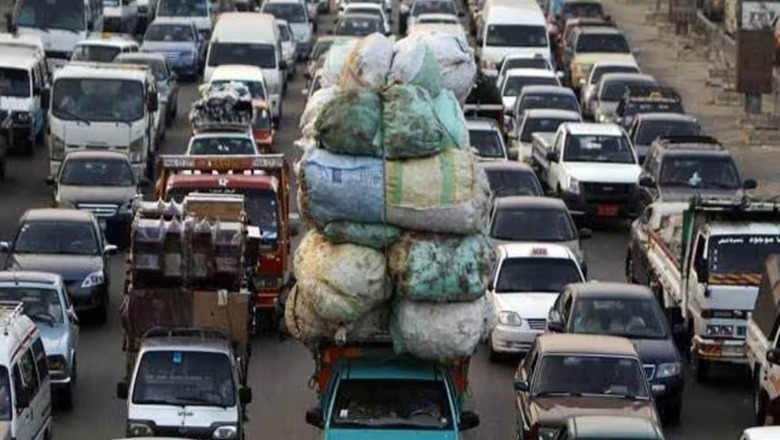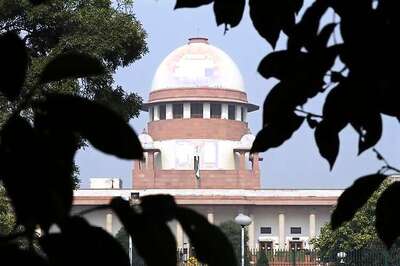
views
Highlighting the issue of overloaded vehicles on national highways, the ministry of road transport and highways (MoRTH) has been asked to explore the option of charging toll based on the weight of the vehicles instead of axle-based fee collection. A parliamentary standing committee headed by Rajya Sabha member V Vijayasai Reddy recommended that the implementation of a weigh-in-motion system to issue automated challans/penalties would eliminate the possible collusion of corrupt officials with heavy vehicle owners and help curb the menace of overloading.
“The committee recommends that the ministry may explore the possibilities of reforming the provisions to charge toll on the basis of weight of the vehicles, instead of axle-based toll collection,” it said. The ministry, in its reply, said that it has noted the recommendation.
The committee also “strongly recommended” that the ministry should take immediate measures to curb the menace of overloaded vehicles on national highways. The ministry was also asked to rectify weighing machines which have been non-functional for a long time.
“Hefty fines should be imposed on vehicles not abiding by the limits,” the report, presented last week, said.
MoRTH was also asked to coordinate with the concerned ministries and state departments to introduce provisions for a penalty on the consignor and consignee as well, besides the truck owners.
“The committee feels that doing so would deter the loading of excess load from the source itself and prevent damage to NHs while also improving road safety,” it added.
The ministry informed the committee that as per the National Highway Fee Rules, 2008, a mechanical vehicle that is loaded over the permissible maximum gross weight is not permitted to use the national highway or cross the fee plaza until the excess load has been removed.
The rules also provide for penalties from overloaded vehicles to curb overloading on national highways. The ministry also said that overloaded vehicles are liable to pay applicable fees of the next higher category.
In 2013, MoRTH amended the rule and the fee for overloading was enhanced to 10 times the applicable fee. The rules were again changed in 2018. Currently, on publicly funded fee plazas, the overload tariff is collected as per the 2018 order.
The ministry also said that for Build-Operate-Transfer (BOT) Concession Agreements, the penalty for overloaded vehicles is being charged by the concessionaire as provided in their respective agreements.
“Mostly for any overloaded vehicles, the user fee is charged equally to the user fee prescribed for the next higher category of vehicle,” it said.
Overloaded vehicles and those with loads protruding/hanging are a traffic hazard, risking accidents for themselves and other road users. During 2022, overloaded vehicles accounted for 6.1 per cent of total accidents, 7.2 per cent of the total killed, and 6.5 per cent of the injured.




















Comments
0 comment